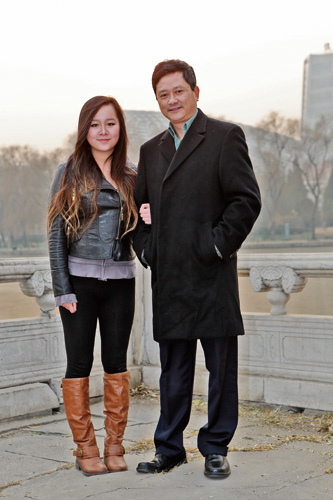
There are six education systems that we looked at in this year’s School Choice Guide. The fourth system is the International Baccalaureate (IB). Get to know why the Fang Family chose this system. Read about the first system, Advanced Placement Courses and SAT/PSAT here; the second, the Chinese National Curriculum here and the third, the English National Curriculum here.
Formerly known as the IBO, the International Baccalaureate (IB) is a non-profit educational foundation headquartered in Geneva, Switzerland. It was founded in 1968 and is administered by a board of governors and six permanent committees that handle policy and best governance practices.
The IB is divided into three programs that can be applied individually or as a whole: the Primary Years Programme or PYP (ages 3-12), the Middle Years Programme or MYP (ages 11-16), and the Diploma Programme or IBDP (ages 16-19). Institutions that are authorized to offer one or more of these programs are known as IB World Schools. According to the official website, there are over one million IB students in more than 140 countries around the world.
Who does it target?
As a whole, the IB’s programs target students 3-19 years of age.
How is it applied?
All three of the IB’s programs share the following traits:
• They require study across a broad range of subjects.
• They emphasize language learning.
• They encourage interdisciplinary learning.
• They include a community service requirement.
Each program has its own curriculum; the IBDP is probably the best-known. Over two years, students must take six courses drawn from the following subject groups: arts, experimental sciences, language acquisition, studies in language and literature, individuals and society, and mathematics and computer science. Normally, half of these subjects are higher-level courses (240 teaching hours) and the other half are standard-level courses (150 teaching hours).
Other hallmarks of the IBDP include Theory of Knowledge (TOK), “Creativity, Service, and Action” (CAS), and the extended essay. TOK is a compulsory course that focuses on critical thinking and the nature of knowledge. CAS reflects the belief that students should pursue activities outside the classroom. The extended essay is a 4,000-word paper designed to prepare students for undergraduate university work.
IBDP students are graded on a scale from 1 to 7 (7 being the highest). They can also gain up to three extra points for their combined results on TOK and the extended essay, bringing the maximum total grade to 45 points. The IB diploma is awarded to students who obtain at least 24 points and satisfy their requirements in CAS. In general, about 80 percent of students obtain the diploma after being examined; fewer than 1 percent achieve a perfect score.
Why should parents consider it?
The IB has a 43-year history of high-quality international education. IB World Schools go through a rigorous authorization and evaluation process and IB teachers participate in a variety of professional development events. The IB has a distinct focus on international education, making it one of the most popular – and natural – choices for expat families in Beijing.
How well does this education system prepare students for the real world?
The IB diploma is accepted by over 2,000 universities in 75 countries. In addition, IB provides students with an international skill set, including knowledge of a second language, advanced critical thinking skills, dedication to community service, and the ability to appreciate different cultures.
The Fang Family (US)
Liming Fang is the father of Sophia (age 17), a student at Beijing BISS International School (BISS). Liming is the Asia Pacific marketing director at Polymer Technology Systems.
Why did you choose the IB curriculum?
Liming: I believe that a western or international education, unlike the education I had in China, encourages thinking rather than just following. There’s a much more in-depth exploration of each subject. While Sophia was at middle school in America, she was preparing to take AP courses in high school. When we moved to China, I found that the AP program wasn’t as commonly available. I thought IB was the most intellectually-challenging option available, so I spoke to the staff at BISS. The school was the most important factor in the end because BISS seemed friendly, convenient and flexible, and it met our core needs.
What are the benefits of this curriculum?
The higher-level courses allow my daughter to explore the subjects that she is most interested in, such as physics, chemistry and economics. She is can develop and explore her interests, which is beneficial before university. Besides preparing her academically, the curriculum promotes free thinking. When I talk to my daughter, I can see that she has developed a much more scientific method of looking at the world. I attribute that to the exploration she does in her higher-level physics and chemistry classes. She’s also developed as a leader and has become more creative.
What features of the curriculum are cause for concern?
At times, the program seems too intense. I can see the potential danger if the courses are chosen incorrectly; the pressure can be too great. But overall, it was fairly easy for Sophia to switch to IB from AP. We didn’t notice too many differences; they are both challenging programs.
Find the downloadable 2014-2015 School Choice Guide here.
Come talk to the schools offerring this curriculum at the 2014 beijingkids and JingKids Spring School Choice Fair, sponsored by RGF AIR Purifiers at the Hilton Beijing on March 1 and 2.
Photo by Ken



